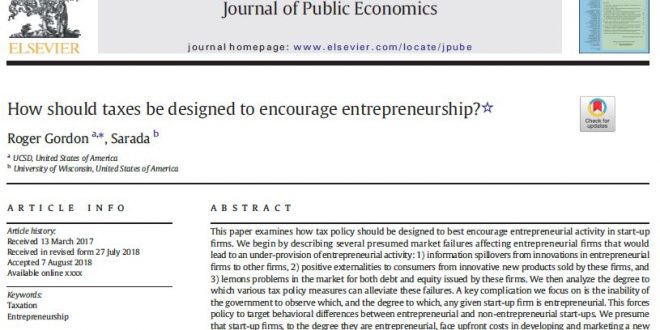چگونه باید مالیات برای تشویق کارآفرینی طراحی شود؟
This paper examines how tax policy should be designed to best encourage entrepreneurial activity in start-up firms. We begin by describing several presumed market failures affecting entrepreneurial firms that would lead to an under-provision of entrepreneurial activity: 1) information spillovers from innovations in entrepreneurial firms to other firms, 2) positive externalities to consumers from innovative new products sold by these firms, and 3) lemons problems in the market for both debt and equity issued by these firms. We then analyze the degree to which various tax policy measures can alleviate these failures. A key complication we focus on is the inability of the government to observe which, and the degree to which, any given start-up firm is entrepreneurial. This forces policy to target behavioral differences between entrepreneurial and non-entrepreneurial start-ups. We presume that start-up firms, to the degree they are entrepreneurial, face upfront costs in developing and marketing a new technology, and in the process face substantial risk. Our analysis then suggests the use of refundable tax savings from business losses in start-ups together with a compensating surtax on the profits of start-ups (needed in the case of lemons problems) to help alleviate the various market failures faced by entrepreneurial start-ups.
نویسندگان: Roger Gordon, Sarada
ژورنال: Journal of Public Economics
سال انتشار: 2018
دانلود مقاله:





